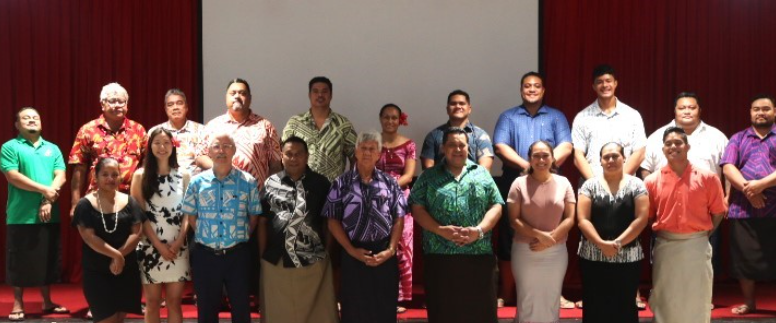The Ministry of Commerce Industry and Labour (MCIL) in partnership with the British Standards
Institution (BSI) and Pacer Plus Implementation Unit (PPIU), hosted the Samoa National Quality
Policy (NQP) Consensus-building Workshop at the Tanoa Tusitala Hotel in Sogi on Thursday 14 th
March 2024. The program took a significant stride forward with the successful conclusion of the
workshop as well as enriching inputs from gathered key stakeholders, industry representatives and
experts in the field to deliberate on crucial aspects of the policy framework.
Prior to the workshop, the international consultant from BSI conducted a series of Face-to-Face
consultations from Monday 11 th to Wednesday 13 th of March 2024, with the following sectors or
groups:
1. Private Sector,
2. Farmers Associations and the Ministry of Agriculture and Fisheries (MAF),
3. Laboratories.
The workshop served as a platform for collaborative dialogue and knowledge exchange, aimed at
formulating a comprehensive and inclusive National Quality Policy tailored to Samoa's unique
socio-economic landscape. Participants engaged in constructive discussions surrounding the gaps in
the National Quality Infrastructure (NQI) in Samoa, vision, objectives, policy measures, and key
activities necessary for the effective implementation of the nation quality policy.
The event underscored the importance of multi-stakeholders collaboration in thriving forward
initiatives that promotes quality assurance, market competitiveness on the national and international
scale, and consumer protection. Through collective efforts, the implementation of the NQP will
strengthen the quality infrastructure to foster innovation, facilitate trade and safeguards the well-
being of the citizens.
The Chief Executive Officer, Mr. Chu Ling delivered the keynote address and emphasized the
importance of the National Quality Policy, which serves as a guiding beacon, provides framework
for decision-making, resources allocation and performance evaluation, thereby fostering
accountability and transparency. He also highlighted the prioritization of capacity building through
trainings and awareness-raising programs to enhance the competencies and skills of stakeholders at
all levels.

